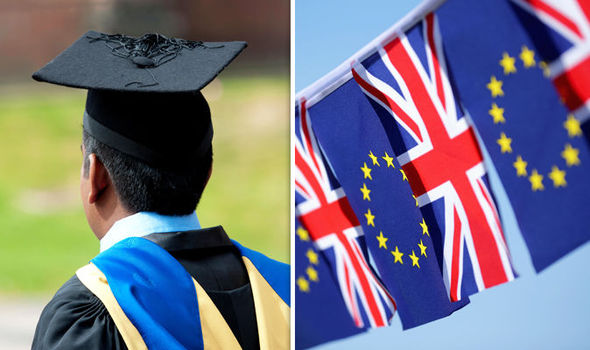
On the 24th of June 2016, financial markets reeled, EU countries took stock and Governments from around the world were seemingly unanimous in their shock at the result of the UK’s EU referendum (the UK included).
Some one month on, there have been at least some questions answered as to just what’s next for Britain, and her relationship with the EU, and with the wider world. Yet there are still many questions that as yet remain unanswered – not least of which is what Brexit means for the international student hoping to study in the UK.

In this article, we explore the landscape post-referendum for those who had set their educational sights in the UK – and explain why, whilst the government is yet to publicly speak on the issue, there are plenty of positive arguments for sustaining the current level of international students.
EU Students and Non-EU students: The landscape between the two:
Whilst all international students pay the same university fees, EU students were previously able to benefit from the free movement agreement with the UK. Yet with the ceasing of free movement, international students from outside the EU may well face changes in governmental policy that make it harder for them to study in the UK also. In many ways, international students on a whole may face the same challenges in the future, yet before we can conclude with this, let’s dive into the issue deeper.
International students: The story pre-Brexit:

The UK has long since served as one of the world’s leading propositions for international students. In 2015 alone, such students made up 436,585 of the UK’s Higher Education population (UK CISA 2015); so significant are these figures that they accounted for the UK being the country to attract more international students than any other that year (British Council 2015). The culture, leading educational standards and strong economy all had previously served as strong draws contributing toward these figures.
Equally however international students serve as an attractive market segment for the average university, as they provide up-front and payment of fees in full, whilst also enriching the student populous with diverse cultures, backgrounds and experiences.
This applies also to the UK as a whole – as international graduates offer a talent pool from which UK employers may benefit; whilst equally, such students account for £10.2 billion of the UK economy annually (British Council 2015).
For all of these reasons it seems that it’s in no one’s best interests to stop, or even reduce, the number of international students welcomed to the UK: not universities, not international students, not the UK economy. Yet the practicalities and legalities that surround HE and international students are another thing entirely.
So, what does Brexit really mean for the international student?
Just before the EU referendum, 103 universities contributed to an open letter that expressed their “grave concerns” should the UK vote to leave and today a wave of HE bodies, universities and organisations are arguing for the same welcoming of international students.
- But let us first begin with what we know: and that’s that any change will take time
Any changes to universities in relation to international students will, just as the process of the UK’s exit from the European Union, take time.
“There will be a gradual exit process with significant opportunities to seek assurances and influence future policy.”
- Julia Goodfellow, Universities UK (UUK) president
Julia also stated that she wished to ensure that staff and students who were from the EU will also be able to both work and study in the future.
- Fees won’t change for EU students
Universities have already begun to state that the fee structures that international students face won’t change (UCL being amongst the first to do so); and in specific relation to EU students, the European University Association has said that British institutions will remain 'an essential part of the European family' (The Independent 2016).
- The weak pound presents attractive finances

Following the announcement as to Britain’s exit, the pound plummeted to a 31 year low. Whilst the currency has recovered somewhat, the future of the pound will largely remain uncertain until the exit is complete – and it’s foreseen that for some years after it may put in a less than optimal performance on the currency markets. For students travelling to the UK, this is good news. It means that their home currency, whatever it may be, will gain more pounds than previously, making studying and living the UK cheaper than ever before.
- The jobs market
With the previous levels of immigration, came workers on-mass, and whilst a stalled UK economy may see the number of available jobs fall, it must be considered that post Brexit, the UK will likely face skills shortages across many industries. If the jobs rules don’t change for international students, this may well present richer pickings for working alongside studying.
- Theresa May: A potential track record to worry about?
The Conservative Government have taken an arguably tough line approach to immigration on a whole, and the fact that Theresa May, the UK’s new Prime Minster, has previously deported 48,000 international students in error (The Independent 2016) will understandably cause concern for many.
What’s more May has also stated that universities should “develop sustainable funding models that are not so dependent on international students", as she looks to reduce immigration figures for which the government have been so heavily criticised.
Yet any effort to do this will not be without plenty of opposition, as Mostafa Rajaai, International Officer for the National Union of Students, so succinctly states:
"As it stands, the British student visa regime is one of the toughest and least welcoming in the world. By tightening it further, the Higher Education sector will lose out on hundreds of thousands of international students choosing other countries over the UK."
- Mostafa Rajaai, International Officer for the National Union of Students
In summary
At worst, it may be said that, in the future, EU students face the same processes and procedures as International students currently – yet the key question that remains unanswered is how the UK’s immigration rules and regulations will evolve over the coming years in a wider sense.
That said, with so many bodies backing the case for international students it appears that the government has a tough job on their hands in attempting to enact any change for the populous of international students who are clearly so beneficial to the country, to the economy and to the UK’s universities.
Educational Consultancy and Top University Placement Hotline: +44 (0) 203 856 8188








